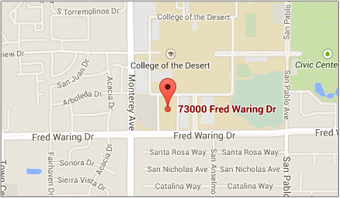Thursday April 25, 2024
Personal Planner

Domicile - Where You Live Affects Your Taxes
A successful business owner with a large estate passed away in 1976. He had grown up in Texas, moved to California and also lived for many years in Nevada. With a net estate of $2.5 billion, his estate owed substantial federal and state taxes.
While the estate proceedings were held in Nevada, both California and Texas sued to collect state estate tax. The Nevada court eventually determined that the domicile or personal residence of the businessman was in Nevada. This was quite important, because the 40 wills that had been submitted were all determined invalid under Nevada law. The estate was finally distributed to 22 cousins under the intestacy law of Nevada.
While this was an unusual case with a very large asset value, there are several reasons why you should understand the basic rules of domicile. Where you live can affect the rights of your heirs, the distribution of your estate assets and whether there will be estate taxes.
There are two basic words that are used in common language, but may have quite different legal meanings. You may be a "resident" of a given location, but you can only have one "domicile." Your domicile is your permanent place of residence. It is where you reside most of the year and where you intend to make your fixed and permanent home.
If you have homes in more than one state, then the question of domicile becomes quite important. For example, if your will were declared invalid, the laws of your state of permanent residence would determine who receives your property. These laws vary substantially from state to state, and they are quite likely to generate litigation by distant cousins and other family members. Some family members may receive more under the law of State A and some may receive more under the law of State B. This result will nearly always lead to litigation - with a potentially huge cost to your estate.
Old State Domicile
If you have homes or residences in more than one state, you may decide for tax or other reasons to move to a new state. However, the auditors at the department of revenue in the "old state" may try to establish that you are still domiciled in the old state so that they can require you to continue to pay income tax to the old state during life and, eventually, estate tax.
There are several flags that state tax auditors will examine to try to show that you still are domiciled in the old state.
1. If you have retained your old home and it is more valuable than your home in the new state home, that will be considered.
2. You spend a sizable period of time in your old home and employ domestic assistance there.
3. If you have a business and are actively involved in the business, that could show that you intend to stay in old state and are subject to taxes there.
4. If you spend the majority of your time (and most states count any part of a day as a day in the state), then you could be considered domiciled in old state.
5. If you have valuable art collections or other items of great personal importance and you keep them in old state, which is another potential tie.
6. If there are children, grandchildren, nieces or nephews or other relatives that you regularly visit in old state, which suggests intention to remain there.
While the question of domicile is a fact-based issue, any of these factors will be used by state tax auditors to try to collect estate tax from your executor. If you intend to change your domicile to a new state (perhaps a low-tax state), there are a number of steps that you should take.
How to Change Your Domicile
To change your domicile, there are 10 steps that will indicate you intend to establish a permanent residence in a new state.
1. Sell your old home and buy a home in the new state. This is a very clear indication that you plan to live there. You also should keep track of the time that you spend in your old state. The majority of your time should be spent in the new state. It is helpful if over 183 days per year are spent in the new state.
2. Obtain your driver's license in the new state. If necessary, attend training or education courses related to driving vehicles in the new state.
3. Register your vehicles, such as your cars, boat or recreational vehicle in the new state.
4. File a final partial tax return in the old state. After that, plan to file your income tax returns and pay state income taxes in the new state. If the state does not have income tax but has an intangible property tax or other type of tax form, file and pay that tax.
5. Register to vote in the new state. Do not vote again at any time in the old state.
6. Close your bank accounts in the old state and open new bank accounts in the new state.
7. Close your securities accounts in the old state and open securities accounts with brokerage firms in the new state.
8. Obtain medical advisors and financial advisors in the new state. Transfer all of your medical records and financial records to the new advisors.
9. Purchase a cemetery plot or other burial location in the new state.
10. Change your passport address or obtain a new passport with the address of your residence in the new state.
New State Documents
Another important way to show that you are moving to a new state is to contact an estate planning attorney in the new state and obtain new documents. It is desirable to sign a new will, a living trust, a durable power of attorney for healthcare or advance directive and a HIPAA release. These documents demonstrate that you now are intending to be a permanent resident of your new state.
If you take these 10 steps and complete your new documents, you can be quite confident that you now have changed your domicile to the new state. If you spend a considerable period of time or still have an active business interest in the old state, you should also make certain that you are keeping track of the exact number of days that you spend each year in the new state and the old state.
If you pass away with a substantial estate, your heirs will be pleased that you have documented your domicile. Please note that the exemptions for estate tax or inheritance tax may be much lower in many states than a future federal estate tax exemption. Therefore, even with a moderate estate, there may be incentive for the state tax auditors to want to collect tax from your estate. Taking these steps and keeping good records is a way of protecting your heirs from the state tax auditors.











